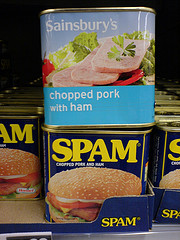 A new study conducted by Ipsos Marketing in 23 countries reveals that nearly 9 out of 10 respondents (89%) believe that store brands are as good or better than national brands in terms of providing a good value for the money. These new results support 2009 statistics that reported an impressive growth in private label brands as well as a 2009 report by Nielsen that predicted store brands would dominate consumer purchase trends in 2010.
A new study conducted by Ipsos Marketing in 23 countries reveals that nearly 9 out of 10 respondents (89%) believe that store brands are as good or better than national brands in terms of providing a good value for the money. These new results support 2009 statistics that reported an impressive growth in private label brands as well as a 2009 report by Nielsen that predicted store brands would dominate consumer purchase trends in 2010.
A few more interesting statistics from the new study are:
- 87% believe that store brands are equal or better than national brands in terms of “offering products that meet my needs.”
- 86% claim that store brands are equal or better than national brands in terms of “offering products that are good for the family.”
- 81% stated that store brands are equal or better than national brands in terms of “offering food products that taste good” and “offering home products that work well.”
- 80% said that store brands are equal or better than national brands in terms of “offering products I trust.”
- 73% reported that store brands are equal or better than national brands in terms of “offering high-quality products.”
- 69% claimed that store brands are equal or better than national brands in terms of “offering innovative products.”
- 65% believe that store brands are equal or better than national brands in terms of “having appealing packaging.”
The question is whether or not national brands should be concerned. There was a time when national brands felt little or no competitive threat from store brands, but today, store brands cannot be ignored. They’re growing as more people try them in response to economic problems and a desire to save money, but they’re also growing as more people talk about them. The word-of-mouth marketing for store brands is strong as consumers are happy to tell friends and family about the less expensive but equally good in terms of quality store brand product they discovered.
National brands need to develop strategies and tactics to not just react to growing store brands but also to proactively protect their market share. It’s not a matter of if store brands will steal market share from national brands but when, and chances are, it’s going to happen sooner rather than later.
Image: Flickr
Lucy is Editor at Corporate Eye


